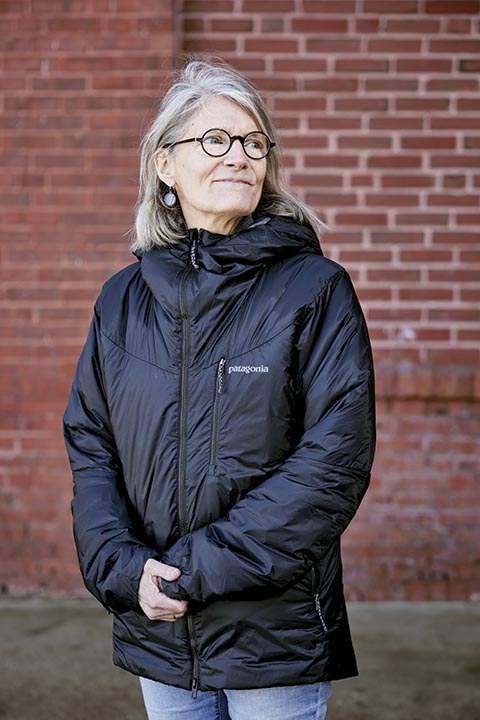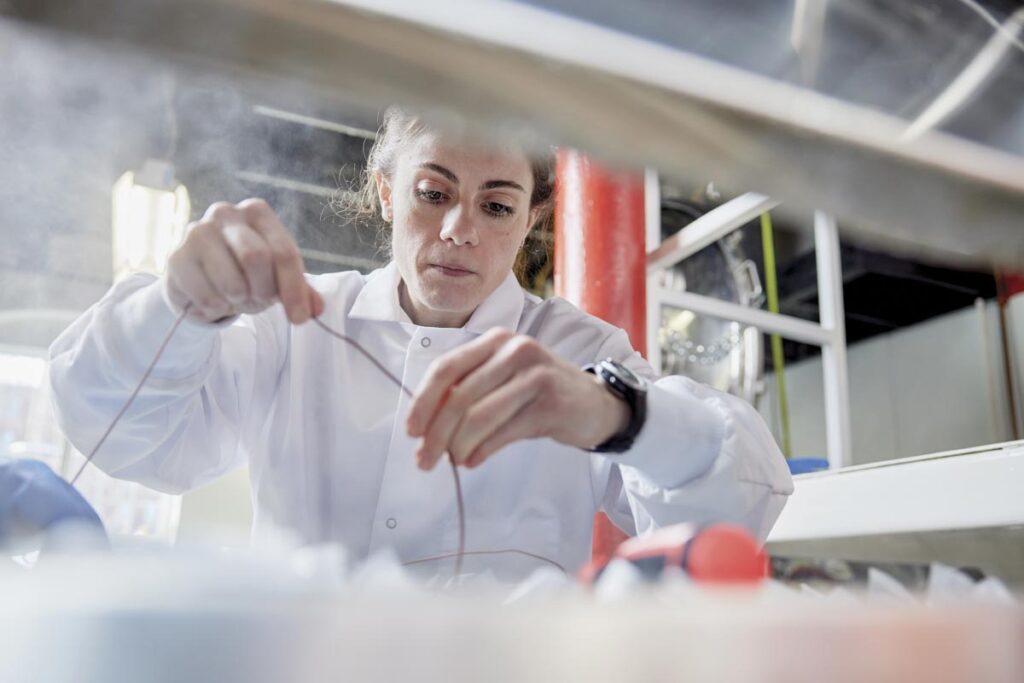By Sarah Stebbins
Photos by Clayton Simoncic
From our April 2023 Animals issue
Sarah Speare, a vegan, really wants people to see the potential in tempeh, the soybean cake that, despite likely having originated in Indonesia some 400 years ago, remains far less familiar to Westerners than tofu, its soybean-curd cousin. “You can crumble it and make tacos, chili, spaghetti sauce, or shepherd’s pie, slice it and have it in stir-fry, or throw it on top of salad,” says Speare, who last year founded Tootie’s Tempeh, in Biddeford. Devotees of the underappreciated alternative to meat tout its beefy texture, nutty flavor, and blend of protein, fiber, iron, calcium, omega-3s, and B vitamins. And because tempeh is fermented, the nutrients are easier to digest.



Speare, who previously founded a company that made breath mints for pets, was casting around for another startup idea in 2019 and hit on tempeh. “I saw it as a sleeping giant because there’s such a growing interest in people reducing their meat intake, whether it’s for their health, the earth, or animals,” she says. “But I had never made tempeh before.”
She discovered that most commercially available tempeh is fermented in perforated plastic bags. “There was such a disconnect between this super-food and this super-bad way of making it,” she says. She and cofounder Barbara Fiore, who has since left the company, spent three years innovating a fermentation method that uses sieve-like metal pans instead. Plastic, Speare thinks, accounts for a bitter aftertaste sometimes associated with tempeh. “Ours is a more pure, clean taste,” she says.


Since launching, in November, Tootie’s — named for Speare’s mother — has been turning out 232 pounds of tempeh per week. This spring, with upgraded equipment, Speare plans to start producing 10 times that. New, seasoned varieties — Italian herbs for pasta dishes, caraway for Reuben sandwiches — are also in the works. In Biddeford’s Pepperell Mill, where Tootie’s is made, production manager and vegan Michael LaCharite passionately expounded on tempeh one recent morning. “I smoked it and made ‘ham!’” he shouted over the whir of a massive stainless-steel centrifuge, which was drying and cooling 125 pounds of boiled soybeans, grown in Maine and Canada. “This is a Cajun dish, étouffée,” he continued, pointing to a photo on his phone. “Look at the tempeh in there! And here’s my TLT.” He swiped to show a BLT-ish sandwich. “I also make a tempeh bánh mì. I marinate it with things that make it taste like bacon.”
Production assistant Kate Musser was adding vinegar and starter culture to a tumbler of soybeans that she and LaCharite had hand-sorted, milled, boiled, and sent through the centrifuge. Next, she pressed the mixture into fermentation pans that’ll spend 24 hours in giant incubators, where the beans will bind with mycelium that grows from the starter culture, transforming the tempeh into nubby, dense cakes. “We’re gonna have a little snack,” LaCharite announced, grabbing a hot plate. He sliced tempeh into triangles, pan-fried them in avocado oil, sprinkled on some salt, and presented them, golden brown, on a plate. “Cheers,” he said. “I could eat this all day.”




